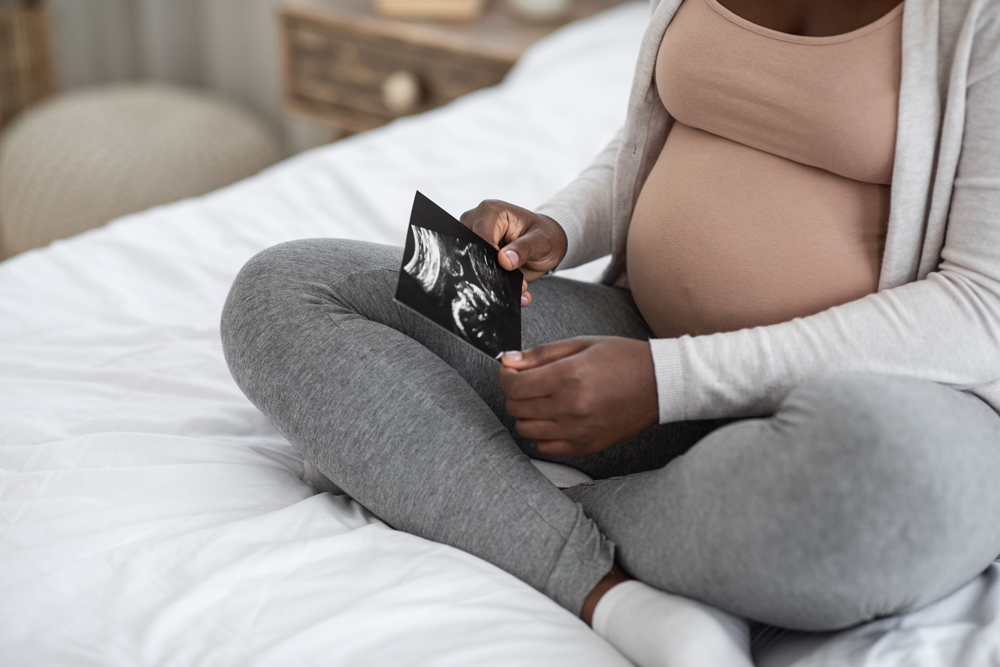
Something to think about during Black Maternal Health Week.
In NJ, a Black mother is 5X more likely to die than a white mother due to pregnancy complications. A Black baby is 3X more likely to die within the first year.
According to the CDC, the leading causes of death among Black babies nationwide are low birth weight and preterm birth. Both are products of systemic stressors and barriers that begin long before a mom reaches the delivery room or a baby reaches the neonatal ICU.
For example, unlike white women, when minoritized women become pregnant, they are often asked by a doctor if they plan to terminate the pregnancy. They are also questioned about their relationship with the baby’s father. Yet, their questions and concerns about any medical issues they’re having during and after the pregnancy are frequently dismissed or ignored by the medical staff.
This helps explain why so many Black women feel apprehensive and less trusting of the medical community at large. But even if they don’t, sometimes it’s just their inability to find safe, reliable transportation to and from the doctor that will cause them not to seek treatment.
And, a 2021 study tells us that after giving birth “people of color exhibited more severe postpartum PTSD symptoms across all domains except for dysphoric arousal, with Black mothers particularly affected. Even when we adjust for age, education, and poverty, Black people have elevated symptoms.” (Thomas, Carter, S. E., Dunkel Schetter, C., & Sumner, J. A. (2021). Racial and ethnic disparities in posttraumatic psychopathology among postpartum women. Journal of Psychiatric Research, 137, 36–40. https://doi.org/10.1016/j.jpsychires.2021.02.030)
However, community doulas can play a valuable role to help improve statistics and birthing conditions among Black mothers and their babies. Unlike many doctors and other medical staff, community doulas come from the same communities as the mothers they are serving. This makes it easier to form a trusting relationship. Doulas can fill the void in infant and childhood relational health left by the modern medicalized model of childbirth. They provide mothers with culturally attuned services that can reduce parental stress. When mom is taken care of, she is able to focus completely on nurturing and bonding with her baby—the foundation for healthy child development and mental health.
CGE’s START program is working with United Community Corporation and St. James Health to help improve care for mothers and babies in Newark and other underserved communities. Providing community doula/case managers specially trained in infant and early childhood relational health interventions, as well as free in-person and Telehealth services for families affected by trauma and substance use. Recently, CGE created a train-the-trainer model to bring the Uzazi Village Community Doula Certification to all Residential Associates within our Adult and Adolescent Residential Programs so that all pregnant persons at CGE receive this vital support.
Community partnerships like this play a large part in Nurture NJ’s Action Plan. The goal is to encourage New Jersey’s public, nonprofit and social organizations to work together to help improve health equity for racial and ethnic minorities across the state.
In our blog post titled, Here’s What No One Tells You About PTSD After Pregnancy, you can read how CGE has taken this action plan to heart and is already working together with the Greater Newark Healthcare Coalition and The Alliance for Innovation on Maternal Health—Community Care Initiative (AIM CCI) to improve these health inequities.
This information about PTSD is especially important during Black Maternal Health Week, especially since Black Mamas Matter decided this year’s theme would be, “Building for Liberation: Centering Black Mamas, Black Families and Black Systems of Care.”


